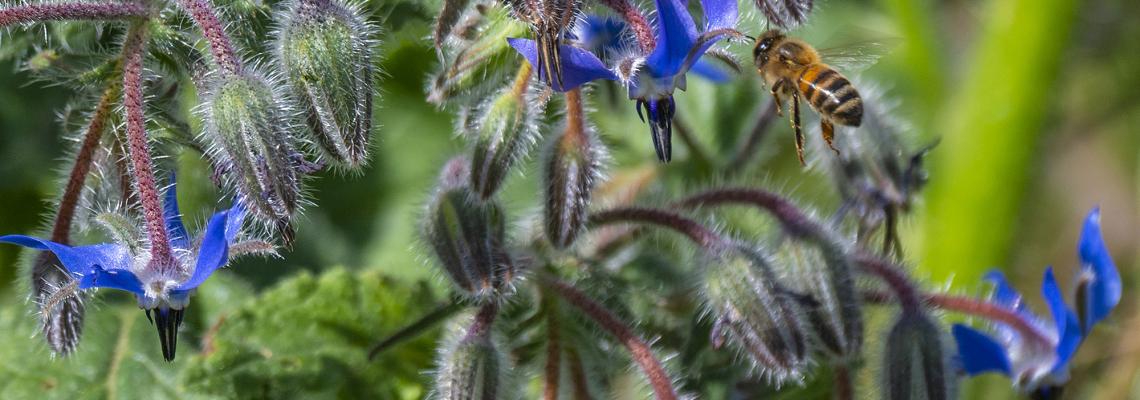Our Starring Role in BBC’s Flagship Rural Affairs Show
Our Estate and its unique colonies of wild honeybees had a starring role on BBC One’s Countryfile on Sunday.

Presenters Matt Baker and Ellie Harrison visited our Oxfordshire UNESCO World Heritage Site to meet some of our Estate’s 27 apprentices, help out with lambing, see how we're preparing for a giant lake dredge and find out more about our vital role in protecting dozens of colonies of rare British honeybees.
The flagship rural affairs programme spent four days filming across our Estate, joining up with our Rural Team to find out what it takes to keep our great Estate running day to day and discover more about our ambitious green goals.
Experienced farmer Matt joined apprentice shepherd Ellie Young and the rest of our Estate’s livestock team to assist with lambing season, while fellow presenter Ellie Harrison spent the day with our bee expert, Filipe Salbany.
Filipe has discovered dozens of colonies of our bees, thought to be virtually non-existent in England as stable populations existing in the wild living in ancient oak, beech and cedar of Lebanon trees on our Estate.
“We have a population of tree-nesting wild honeybees that have, up until now, not been recorded in any form,” said Filipe.
“Their discovery is immensely significant as it means there is a wild, free-living population, of potentially unique genetics that has survived varroa and more importantly has developed the ability to adapt to a niche environment and therefore form an ecotype.”
Our wild bees have had no treatment for the varroa mite, which has been devastating bee colonies across Europe for years, are not fed and have none of the now standard beekeeping interventions.
“Honeybees are an excellent proxy for environmental health and so these local, wild populations are also incredibly important as a barometer to help monitor the effects of climate change,” he added.
Our ancient oak woodlands, which Salbany describes as a ‘paradise of biodiversity’ that has over 3,500 species, have remained virtually untouched since the early 12th century, when they were part of a royal forest used by Henry I for hunting deer.
They’re home to the largest collection of ancient oaks in Europe, with some specimens thought to be more than 1,000 years old and provide a vital habitat for thousands of native plant and animal life.
“There is very little, if any, connectivity between the Estate and the outside landscape which means the ecosystem could be a virtual ‘island’,” he said.
“The ecotype is completely adapted to this specific environment and could have been happily living in isolation on the Estate for hundreds of years. In fact, there was not a single loss of an established nest which number in excess of 40 over the 2021 – 2022 Winter.
“It would also appear these colonies are unique in that they are surviving and thriving in a relatively small area and have evolved their own specific behaviours to continue to exist.
“By studying Blenheim’s tree bees we should also learn valuable lessons of how subspecies adapt to their habitat and how we can help to protect them,” he added.